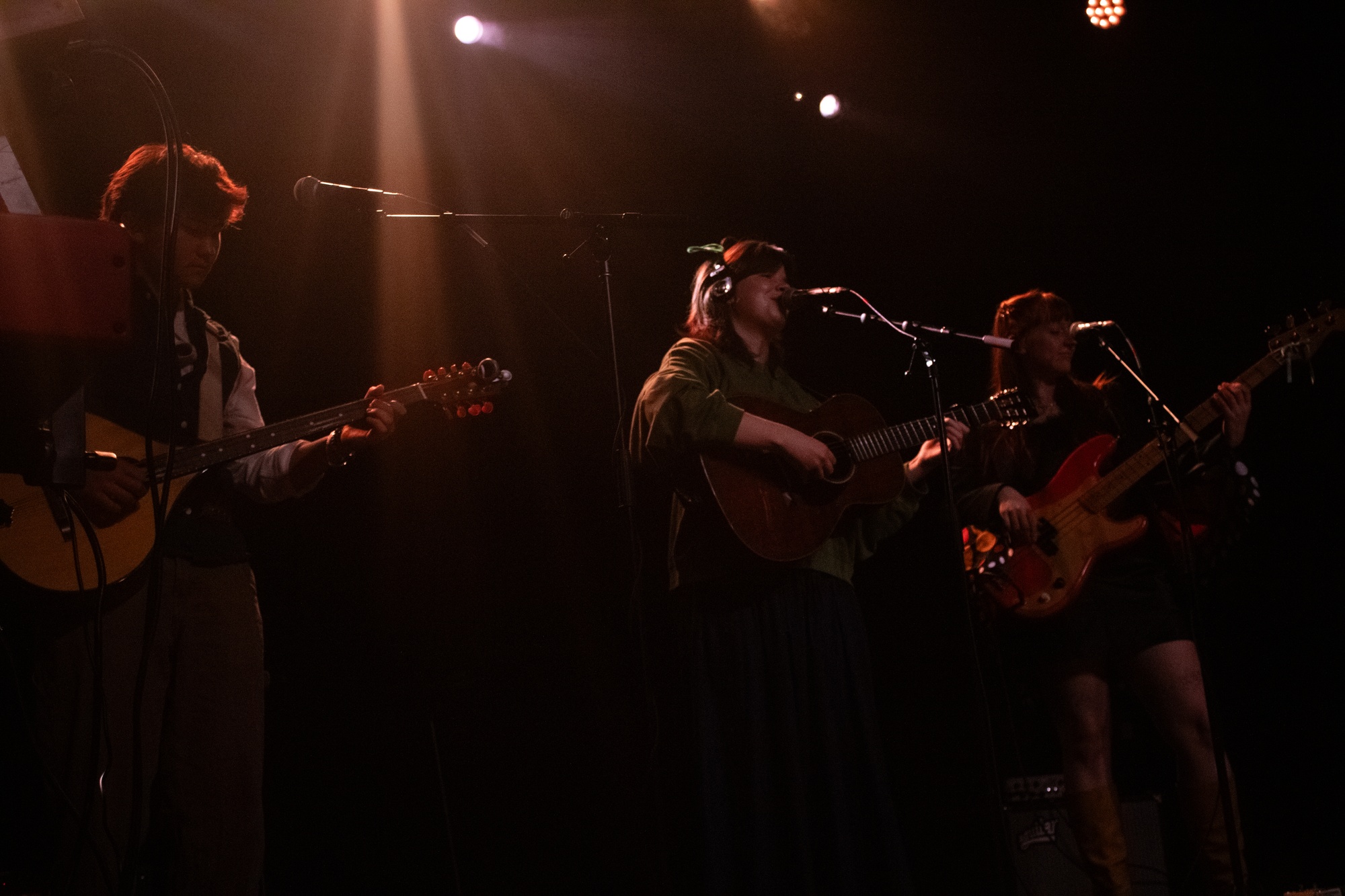
Leith Ross Concert Review: Celebrating Leithween with Love, Grief, and Hope
Ross allowed their emotions to seep into the hearts of whoever was lucky enough to listen, masterfully crafting a show that transported the listener.Amid the pouring rain, a line full of costumed fans began to form outside the Sinclair on Oct. 30 for the first of two Leith Ross concerts in Boston. What they soon saw was nothing short of an experience, taking listeners seamlessly from aching tributes to dreamy tunes on hope and lovesickness.
With flawless transitions from slower, acoustic melodies to upbeat, danceable interludes, indie singer-songwriter Leith Ross beautifully introduced their second album “I Can See the Future” to a sold-out venue. Released just over a month ago, the album made up a hefty portion of the setlist, interspersed with a few of Ross’ more popular songs and even a song chosen by the audience.
Opening act Emma Harner, outfitted in fairy wings and elf ears, brought the same grace to her set as she did her costume, stunning the crowd with devastatingly gorgeous originals, both released and unreleased. When switching between guitars for each song, Harner kept the audience engaged with the stories behind her lyrics: From her pet chicken Gale dying at the jaws of a fox to a reflection on the relatable feeling of conflict avoidance, her narratives transitioned smoothly into songs reminiscent of some of Ross’ earlier work, specifically “Yes Man” — a raw, yet quietly powerful song. Later on, Ross mentioned that Harner — as a former Berklee student — calls Boston home, making Harner’s performance all the more meaningful.
Before starting their set, Ross invited a member of Warm Up Boston to share the program’s Linktree. Expressing quotes from Pema Chodron’s book “When Things Fall Apart: Heart Advice for Difficult Times,” the representative briefly urged the audience to take action, live in defiance of despair, and aid their “unhoused neighbors.” This was not the only stance that Ross took towards uplifting the Boston community, as they donated 25 cents from each ticket sold to The Shout Syndicate, a nonprofit fundraising effort for Boston-based youth artists.
Soon after the announcement, a jack-o’-lantern, Flynn Rider, a butterfly, and a container of spicy chili crisp — the band members — appeared onstage to warm up before Ross joined them, dressed as a frog. The crowd let Ross’ vocals shine, with a select few adoringly mouthing lyrics they had very recently been introduced to with new releases like “Point of View” and “Terrified.” While it was clear that the audience wasn’t as familiar with the newest album, there seemed to be a collective agreement to take the time to appreciate the artistry behind Ross’ lyricism.
Moreover, it was easy to love Ross’ humble stage presence, from their relentless “thank you” between each song to the giggle before what became a recurring bit when introducing each next song as “a song I wrote.” The intimate nature of the venue allowed for such moments — like the crowd-selected performance of “Music Box” — to truly be showcased, as Ross’ masterful songwriting and almost nostalgic solo guitar melody filled the entire space.
This mood carried over into the next song, “I’d Have to Think About It,” which is one of Ross’ older yet more popular hits. For slower songs — which make up most of Ross’ discography — the band seemed to experiment with tempo, keeping listeners on their toes. This kind of variation was refreshing and set the stage for the rest of the concert, which was an incredible mix of lively instrumental breaks between the haunting, raw vocals from Ross. There was never a moment of boredom or unintentional slowness, as the band proved to be a powerhouse both soloistically and as a counterpoint to Ross’ more standout moments.
This was especially true for “Alone,” “Grieving,” and title track “(I Can See) The Future,” where the beat driven by the band — especially with fiddling from the multi-talented Soona Lee Tolley and driving drumset groove from Vania Lee — left fans dancing among the flashing, colorful lights before being stunned by Ross belting or flawlessly harmonizing with the backing vocalists.
This was all, however, a build-up to the last official song on the setlist, “(You) On My Arm,” which was — without a doubt — the most invigorating and memorable moment from the night. Ross’ live performance was somehow more extraordinary than their recorded music; their sheer, contagious joy made it impossible to not shout the lyrics or dance along as they delivered a rendition of the song that made one want to hold someone close, or reach their hand out to a stranger. Their ability to communicate young love was clear — wonderfully supported by not only their stage presence, but also through the sheer energy they had built up throughout the entire concert.
As the song neared its end, it was obvious that there was one song that still needed to be sung. So, as Ross feigned an exit with their band only to return solo with just a guitar, everyone knew they were about to hear the familiar opening to “We’ll Never Have Sex,” a viral, timeless masterpiece. Ross allowed their emotions to seep into the hearts of whoever was lucky enough to listen, masterfully crafting a show that transported the listener through every feeling that encapsulates human existence — from exhilarating crushes to melancholy loss.
